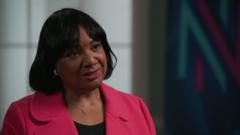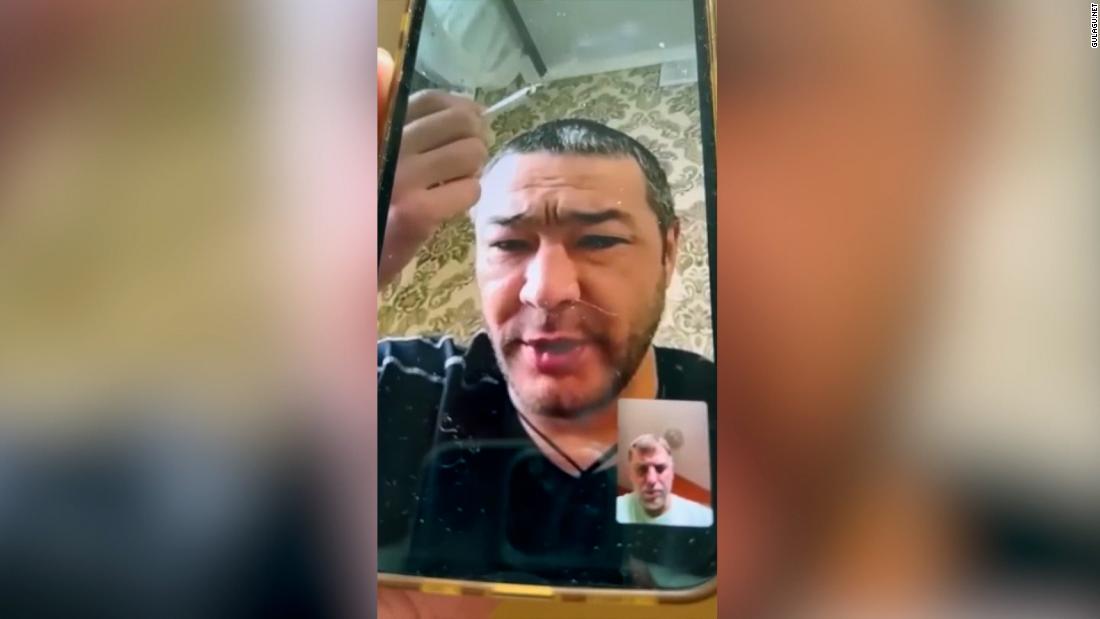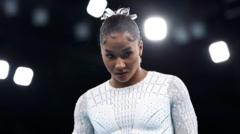Minnesota Gov. Tim Walz (D) and Sen. JD Vance (R-Ohio) will meet on Tuesday evening in New York for the vice-presidential debate.
The 90-minute clash is set to begin at 9pm ET. It will be hosted by CBS and the moderators will be Norah O’Donnell and Margaret Brennan.
There will be no live audience, much like the June debate between President Biden and former President Trump, and the September debate between Trump and Vice President Harris.
There will be at least one difference, however. On Tuesday, the microphone of the non-speaking candidate will only be muted if CBS deems it necessary.
This year’s race is balanced on a knife-edge so any big moment for Vance or Walz could have real impact.
Here are five things to watch:
Will Vance be weird — or will he surpass modest expectations?
Trump chose Vance as his running mate when his campaign was at a high point.
Biden was reeling, but still in the race, after his disastrous debate performance; Trump was leading in the polls; and the former president had just narrowly escaped an assassination attempt in Butler, Pa.
Vance has had a rocky road since then.
Past comments have stirred serious controversy — most notably his 2021 remark about left-leaning “childless cat ladies” running the country.
In addition, some of Vance’s interactions with voters have appeared stiff or wooden. And Trump has left his running mate out on a limb at times, as when the former president was asked in his debate with Harris about Vance’s assertion that Trump would veto a national abortion ban.
“Well, I didn’t discuss it with JD, in all fairness,” Trump said.
Meanwhile, Walz has used Vance’s pronouncements to fuel his insistence that Republicans are “weird.”
An Economist/YouGov poll released last week indicated 51 percent of Americans view Vance unfavorably and just 34 percent favorably. For Walz, those numbers split evenly, 41 percent on each side of the question.
All that being said, Vance could benefit from modest expectations on Tuesday.
If, instead of “weirdness” or awkwardness, the Yale Law School graduate shows his debating chops, he could end up as a big winner.
Can Walz defend himself on his controversies?
Walz has so far managed to cast himself mostly as an affable, plain-speaking Midwesterner.
Harris tries to reinforce this persona with her frequent references to her running mate as “Coach Walz” — an allusion to his time helping coach a high school football team.
But Walz has powerful controversies of his own.
Perhaps the most famous is the 2023 bill he signed in his state that mandated menstrual products should be provided “to all menstruating students in restrooms regularly used by students.”
The law did not specifically mandate that such products be provided in boys’ restrooms. But a GOP-led attempt to amend it to restrict the provision to girls’ and gender-neutral restrooms failed.
The episode has become another battle in the nation’s ongoing culture wars, with social conservatives branding Walz “Tampon Tim.”
Also, Walz has admitted that he “misspoke” in the past when talking about carrying weapons “in war” during his time in the Minnesota Army National Guard. Walz was never in an active combat zone.
There is also some controversy about whether the timing of his retirement from the Guard, shortly before his unit was told it would be deployed to Iraq, was coincidental or not.
Vance, himself a veteran, can be expected to press those points.
Walz, who reportedly told Harris during her vetting process that he was not a strong debater, could face real challenges there.
What does Vance say about the Springfield furor?
Vance was one of the first major voices — before even Trump — to raise false allegations that Haitian migrants in Springfield, Ohio, were eating pets.
In a social media post on Sept. 9, Vance complained that he had been raising the issue of “Haitian illegal immigrants…generally causing chaos all over Springfield, Ohio.”
He added: “Reports now show that people have had their pets abducted and eaten by people who shouldn’t be in this country.”
Trump amplified the claim at his debate with Harris the following evening and chaos ensued.
Local police clarified that there were no “credible reports” of such a thing having taken place, and it became clear that some of the rumors emanated from an ill-conceived Facebook post.
Meanwhile, the Springfield city hall was evacuated after a bomb threat, and local schools also closed. Some Haitian migrants — most in the United States legally, under Temporary Protected Status — said they felt fearful for their safety.
In the aftermath, Vance has at times struck his own tone of moral indignation.
He told CNN that he had to “create stories so that the American media actually pays attention to the suffering of the American people.”
When the use of the word “create” in turn generated controversy, Vance said he was referring to focusing the media’s attention on a situation.
Is the debate about Walz and Vance, or Harris and Trump?
Vice-presidential debates have produced memorable moments, ranging from the substantive to the bizarre.
Back in 1988, Democrat Lloyd Bentsen, aware that GOP vice-presidential nominee Dan Quayle was prone to compare himself with President Kennedy, delivered a withering line — “Senator, you’re no Jack Kennedy” — that still gets replayed as an all-time debate highlight.
On the other hand, the clash four years ago between Harris and then-Vice President Pence was memorable mostly because of a fly that landed on Pence’s head.
Walz and Vance have their idiosyncrasies but are not so vivid — or divisive — figures as Harris and Trump.
The question of which running mate gets the better of the other could end up being rather ephemeral to the campaign.
But any especially powerful blow aimed at the person at the top of the opponent’s ticket might get more traction.
How will CBS’s approach to fact-checking work?
CBS has already stirred some controversy with its announcement that it will primarily be up to each candidate — not the moderators — to fact-check their counterpart.
The moderators will “facilitate those opportunities,” CBS said, according to the Associated Press.
Critics, especially those of a liberal disposition, have accused the network of abrogating its journalistic responsibilities — though CBS has also said that its journalists behind the scenes will fact-check in real time, with viewers able to access their findings through a QR code that will be displayed on screen.
Debate fact-checking has been a vexing issue this year.
CNN moderators Jake Tapper and Dana Bash took a notably passive approach during the June Biden-Trump debate — sparking frustration among Democrats and other critics of Trump.
ABC News’ David Muir and Linsey Davis were much more assertive during last month’s Harris-Trump clash — and were condemned by Trump supporters for allegedly going easy on Harris.
CBS’s approach plainly won’t please everyone. Will it please anyone?















 English (US) ·
English (US) ·